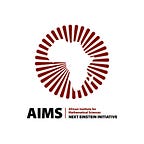How amplifying success stories of women in STEM can enhance mathematics education among young girls
The idea of making mathematics compulsory in high school has been one of the best things that have happened to the education sector. High school is typically between the ages of 13–18, and for most people, this is a time to transition from childhood to adulthood. During that time, the human brain is trying to help the body understand what this thing called life is. For some people, this is a time to start admiring role models, whose paths they would like to emulate in the future. Being children, there’s not yet a clear understanding of right and wrong, or good and bad. Therefore, having an institution decide what’s best for the human brain at that age is important.
The stage of high school is also a good time to keep the human brain active, taking into account all existing body changes. Getting the brain stimulated to think logically, solve problems, and build mental discipline are needed aspects when approaching adulthood. Besides, mathematics plays a vital role in understanding other subjects covered throughout the high school syllabus, for example, sciences and music. This foundation is what has helped many young people participate in extraordinary mathematics and computing competitions world-wide. For example, in this story, we see a 15-yr-old Nigerian student share how she won a global math competition. This kind of competition is healthy for the brain and forms a better-thinking future generation.
Aside from all the advantages of mathematics education in high school, we still face a shortage of those benefits in Africa. Things get worse when it comes to girls in high school. A study conducted in South Africa indicates that on top of a bachelors degree in education and the Post Graduate Certificate in Education, aspiring high school mathematics teachers need further development and support to be able to deliver to full capacity.
Likewise, Africa needs to have female role models in the STEM field to help encourage girls to benefit from the advantages of studying mathematics at high school. Otherwise, the common saying will always hold — mathematics is for boys!
Written by: Winnie Nakiyingi - AIMS Ghana’ 13, Ex-AIMS Ghana and Rwanda Tutor, Chief Coordinator at Canada-Africa Network.
The opinions expressed in this article are those of the author alone and not the African Institute of Mathematical Sciences.
